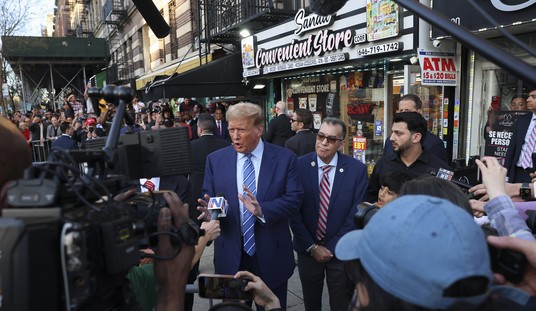Some people believe that money is the root of all evil. At least to the government of India it is the root of all corruption and tax evasion and consequently it is doing everything in his power to withdraw cash from circulation. “On Nov. 8, the Indian government announced an immediate ban on two major bills that account for the vast majority of all currency in circulation. Indians would have until the end of the year to change those notes for other bills, including newly minted ones” reported the New York Times. All that will be left is small change.
Ramesh Thakur a professor at the Australian National University explained in the Japan Times what the new policy was supposed to do and why it won’t work.
The goal is to eradicate black money, counter tax evasion and destroy counterfeit currency. In most large economies, cash is around 5 percent of GDP; in India it is 12 to 14 percent. Fewer than one-third of Indians have access to financial institutions. While most banks are concentrated in cities, most Indians live in villages. Forcing businesses to use banks and digital payments will help to bring them inside the tax net.
Only 5 percent of Indian workers pay income tax, just 15 percent of the economy is inside the tax net and India’s tax to GDP ratio at 17 percent is 5 points lower than comparable countries. Because of high property taxes, for example, buyers collude with sellers to understate the sale value and split the tax difference. This explains why the policy is an attack on the Indian way of doing business: Much of India’s cash-based consumer transactions have ground to a halt. …
The move also confuses the black with the informal economy by conflating cash with black money. Demonetization has the potential to permanently damage the latter, which comprises 45 percent of GDP and 80 percent of the workforce. Its main motor is the desire to escape the crushing burden of state taxes, regulations and bureaucracy. India’s formal and informal economies are not quarantined from each other, but form a seamless value chain. For example, almost one-third of the working capital of small businesses comes from the black economy. Can that lost capital be replenished with fresh credit?
Cash filled a real need in India. Not surprisingly some Indians have turned to substitute currencies to make up for the lost Indian money. The use of Bitcoin is reported to be surging for those who can use it. According to another New York Times article others are shifting to Euros or US dollars.
When governments destroy their currency the population obtains another. Governments can destroy their paper currency in one of two ways. They can do so deliberately, by withdrawing it from circulation, as India appears to be trying to do. Or they can debase it as is the case of Venezuela. The Washington Post reports that the Venezuelan Bolivar is now so worthless that it requires cartloads of money to buy food in the supermarket.
It’s not so easy to find someone who still uses a wallet in Venezuela, where inflation is expected to reach 720 percent this year and the biggest bill — 100 bolivars — is worth about 5 U.S. cents on the black market….
So Venezuelans must handle huge volumes of cash — so much that the bills don’t always fit in a standard wallet — with many people packing wads of currency in handbags, money belts or backpacks.
The owner of a tiny kiosk selling newspapers, cigarettes and snacks in one of Caracas’s nicer neighborhoods said that each evening he quietly stuffs a plastic bag full of the day’s earnings, around 100,000 bolivars (about $52) in notes of 10, 20, 50 and 100 bolivars. This is a country with one of the highest crime rates in the world, and carrying that much cash is dangerous. He said he doesn’t feel safe, despite having his own scooter rather than using public transport.
Under those conditions people will resort to barter or other currencies. Given enough time Venezuela is bound to follow in the footsteps of those widely admired anti-American countries, of which Cuba is one, where the only widely accepted money is the Yankee Dollar. Eventually Zimbabwean hyperinflation became so bad that Mugabe simply lost the power to print currency. The entire country shifted over to the US dollar when the exchange rate reached 35 quadrillion to 1 US dollar. The Mugabe regime has restarted the printing presses after a momentary relief with a new paper bill called the “bond” issued at par value to the US dollar but no one expects it to last.
Many ordinary people fear the new “bond notes”, issued on Monday by the central bank in Zimbabwe, will trigger economic chaos, wiping out savings and causing massive hardship for millions.
Zimbabwe has been ruled by Robert Mugabe, 92, since 1980. Some observers have called the bond notes the autocratic president’s “last gamble”.
The central bank says bond notes will ease crippling shortages of currency, but there are fears their introduction could encourage rampant printing of cash, as happened in 2008.
Only the introduction of the dollar as the official currency in 2009 halted an economic meltdown.
As Tim Worstall of Forbes points out Mugabe’s money is less currency and more counterfeit. The quantities it is printed in and the lack of any backing for the notes proves it doesn’t have any legitimate claim to being legal tender at all. Mugabe’s new money is issued in such pitifully small quantities and set at such a convenient exchange rate to the US dollar (1:1) that it seems designed to piggyback off foreign bills rather than express any economic meaning.
Now, of course, these new bond notes aren’t the only currency circulating. People are using Rand, Dollars, Yen we’re told as well. But still–that a new currency is being issued but only in the sort of volumes that would support a small English country town for a whole country (no, really, there’s about £1,000 in cash per UK inhabitant from the numbers above so, $10 million is £7 million or so is enough to a town of 7,000 people) shows just how appallingly Mugabe has gutted the Zimbabwean economy.
It is no accident that German printers refused to have anything to do with them. “A German company which specializes in the printing of banknotes, Giesecke and Devrient, has rejected Zimbabwe’s request to print bond notes for the cash-strapped Treasury, prompting the desperate government to turn to neighbouring South Africa and other countries for help.”
Money in its various forms has become the new battleground between a State that needs to reward its constituencies with and the actual economy which produces most of the real goods and services required to do it. The sad experience of command economies suggests in end the Real always wins over the Official. As Ramesh Thakur said of India’s demonitization policy: “a better solution would have been to shift the balance of economic decision-making away from the state to firms and consumers; simplify, rationalize and reduce taxes; cut regulations and curtail officials’ discretionary powers; eliminate loopholes; and widen the tax net.”
But it’s a lesson that has to be relearned over and over again. The National Review points out that “one thing did not change on Tuesday, November 8 — our unsustainable and exploding national debt of nearly $20 trillion.”
While America was focused on an unconventional presidential-election season, the federal debt increased $587 billion in fiscal year 2016 alone. Last year, our federal government spent $223 billion, or 6 percent of all discretionary spending, on debt interest payments. On our current track, we will spend more on debt interest than we do on our national defense within ten years. …The federal debt wasn’t a major focus during the presidential campaign but must be addressed if we are to create lasting economic health for the American economy.
It’s unthinkable, but even the Yankee Dollar, given enough abuse, can be debased. Nobody in Washington wants to hear this but then nobody in Caracas or Harare did either.
Follow Wretchard on Twitter
Support the Belmont Club by purchasing from Amazon through the links below.
Books:
A Spontaneous Order: The Capitalist Case For A Stateless Society, by Christopher Chase Rachels. A presentation of anarcho-capitalist ideals described by critics/readers as concise, rigorous and accessible.
True Believer: Stalin’s Last American Spy, by Katie Marton. The story of Noel Field, an Ivy League-educated, US State Department employee who spied for Stalin in the 1930s and ’40ss, based on Field family correspondence, Soviet Secret Police records, and reporting on key players from Alger Hiss, CIA Director Allen Dulles, World War II spymaster “Wild Bill” Donovan to Josef Stalin.
The Short Drop, Bestselling first novel in the Gibson Vaughn series by Matthew Fitzsimmons. A political thriller.
Empires of the Sand: The Struggle for Mastery in the Middle East, 1789-1923, by Efraim Karsh and Inari Karsh. This book rejects the view of modern Middle Eastern history as an offshoot of global power politics. It argues, backed by a wealth of archival material, that the main impetus for the developments during this period came from the Hashemites and other local actors, an interpretation that affords daringly new ways of viewing the region’s past as well as its volatile present.
Did you know that you can purchase some of these books and pamphlets by Richard Fernandez and share them with your friends? They will receive a link in their email and it will automatically give them access to a Kindle reader on their smartphone, computer or even as a web-readable document.
The War of the Words, Understanding the crisis of the early 21st century in terms of information corruption in the financial, security and political spheres
Rebranding Christianity, or why the truth shall make you free
The Three Conjectures, reflections on terrorism and the nuclear age
Storming the Castle, why government should get small
No Way In at Amazon Kindle. Fiction. A flight into peril, flashbacks to underground action.
Storm Over the South China Sea, how China is restarting history in the Pacific
Tip Jar or Subscribe or Unsubscribe to the Belmont Club









Join the conversation as a VIP Member